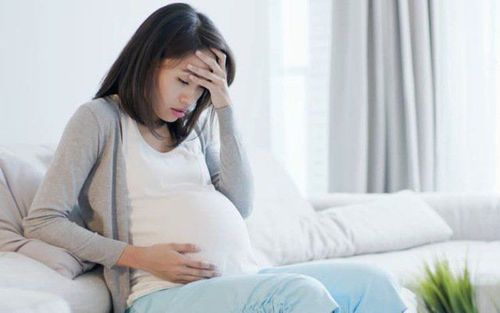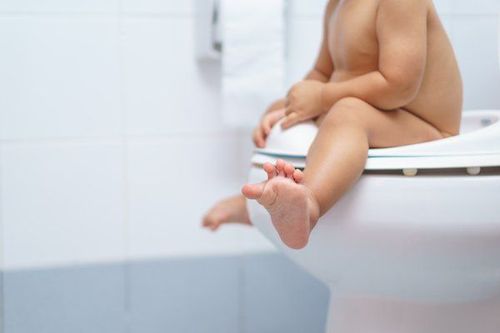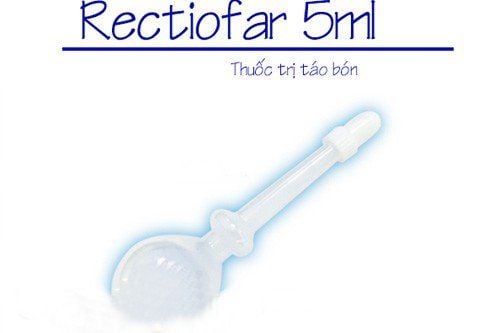This is an automatically translated article.
The article was professionally consulted by MSc, Dr. Trinh Thi Thanh Huyen - Obstetrician and Gynecologist - Department of Obstetrics and Gynecology - Vinmec Hai Phong International General HospitalPostpartum women, if constipated, need to re-establish normal bowel reflexes, have a reasonable diet and rest to avoid negative consequences for the digestive and reproductive organs later on.
1. Causes of Postpartum Constipation
Constipation in postpartum women is a form of functional constipation, mainly related to improper diet and lifestyle. There are many different causes leading to postpartum constipation:
Due to hormonal changes during breastfeeding. After giving birth, women often limit their movement, lie in bed a lot, so their bowel movements are weak, stools stay in the intestines for a long time. Eating and drinking after giving birth affects breast milk supply, so women are often more abstinent than usual along with the mentality of limiting water intake to prevent milk from being diluted, which is one of the risks of increasing constipation in women after birth. born. Postpartum women often have pain when defecating (maybe due to caesarean section or perineal stitches have not healed), making defecation difficult, psychologically afraid to go, and then hold back defecation leading to constipation later. born. During pregnancy, the yin blood concentrates to nourish the fetus, so the colon is less "nourished" so it causes dryness and constipation after birth. At the same time, postpartum women often lose blood, lose fluid, so the body is damaged, the blood has not been able to feed the colon, so it is easy to become constipated. Women who are often constipated before giving birth or not yet pregnant, the risk of postpartum constipation will increase markedly, causing pain during defecation and also easy tearing of the anus or hemorrhoids, then uterine prolapse. rectal prolapse than normal women. Constipation in postpartum women is a form of functional constipation

2. Is postpartum constipation serious?
Constipation is not always severe or becomes severe, but patients should consult a doctor if they see mucus or blood in their stools.
In the case of abdominal pain with alternating constipation and diarrhea, it could be a symptom of another illness.
In addition, postpartum constipation and straining to defecate can cause or worsen hemorrhoids. Hemorrhoids can shrink quickly or persist for months after giving birth.
It can be said that postpartum constipation is a common condition, the patient should not be too worried. It should be noted that, even if postpartum constipation is not serious, do not hesitate to consult a healthcare professional or doctor, if it persists.
Trắc nghiệm: Những điều cần biết về kiêng cữ sau sinh
Sau sinh, cơ thể sản phụ sẽ có rất nhiều sự thay đổi, việc thực hiện tốt các kiêng cữ sau sinh và bổ sung đầy đủ các chất dinh dưỡng cho cơ thể sẽ giúp ích rất nhiều trong quá trình hồi phục sức khỏe. Bài trắc nghiệm dưới đây sẽ giúp mọi người có cái nhìn tổng quan về kiêng cữ sau sinh và thực hiện sao cho phù hợp nhất.The following content is prepared under supervision of Thạc sĩ, Bác sĩ y khoa, Tạ Quốc Bản , Sản phụ khoa , Khoa Sản phụ khoa - Bệnh viện Đa khoa Quốc tế Vinmec Phú Quốc
3. Prevention of postpartum constipation
Because they are breast-feeding, women need to consider to use appropriate solutions to prevent constipation without affecting their milk supply. Postpartum women can rest assured to prevent constipation in the following ways:
Healthy diet, plant fiber supplements In the postpartum period, the mother needs to pay attention to her diet to restore her body. as well as enough milk to breastfeed, as well as limit eating some foods that are not suitable for pregnant women.
However, do not forget to add plant fiber to your diet. Fiber is the indigestible part, when in the intestine it will absorb water and expand, forming stool mass, helping to remove stool mass from the body. In addition, fiber also stimulates the growth of beneficial bacteria for the digestive system, these bacteria will stimulate intestinal peristalsis to secrete lactic acid to pull water into the intestine to soften stool. Therefore, fiber is very helpful in preventing and treating constipation.
Plant fiber is found in all green vegetables, fruits, legumes, and whole grains.
Drink enough water every day Because fiber needs water to swell and soften stools, if water is not absorbed enough, stools will lack water and will become very dry. So along with the fiber supplement is the addition of fluids.
Every day, postpartum women should drink enough 1.5 - 2 liters of water per day. Water can be added in many different forms such as: cooled boiled water, juice, milk, broth.

Postpartum women can safely prevent postpartum constipation with a scientific diet.
Vitamin and mineral supplements Vitamins and minerals are essential for breastfeeding women. The essential vitamins are: calcium, vitamin D, vitamin A, iron, zinc...
Gentle physical activity Physical activity not only helps to promote overall health but also helps the metabolism to take place. out more favorable, reducing the risk of accumulation of waste products in the large intestine causing constipation after birth.
After the confinement period is over, mothers should exercise their body and do appropriate exercises. After that, you should maintain regular exercise every day, this is very good for health.
Practice toilet habits The bowel movements seem simple, but if not done properly, the mother can make constipation in postpartum women much worse. Therefore, do not forget some of the following principles:
Going to the toilet on time: Practicing the habit of going to the toilet on time will create folds and enhance the stable functioning of the intestines and colon. It is best to go to the bathroom in the morning or else you can choose a most comfortable time of the day.
Do not hold bowel movements: Long-term delay in bowel movements will cause loss of bowel reflexes, leading to more severe constipation. If you do not have a bowel movement, waste will accumulate in the body for a long time, producing many harmful substances that are not good.
Do not sit for too long in the toilet: Many people have the habit of going to the toilet to carry books, newspapers, and phones and then sit in it for a long time. However, sitting for too long will put great pressure on the veins, causing constipation and hemorrhoids for a long time.
Posture to the toilet: The best position for defecation is the squatting position, in this position the rectum will be in a straight line, creating conditions to push the waste out more easily. However, if you sit on a pedestal, you can leave a chair about 20cm below your feet to create a squatting position.
Keep mentally comfortable In health care, psychological factors always play an extremely important role in maintaining and repelling diseases. Therefore, you should always keep an optimistic mind, avoid worry, sadness, anger, insomnia.
Please dial HOTLINE for more information or register for an appointment HERE. Download MyVinmec app to make appointments faster and to manage your bookings easily.














